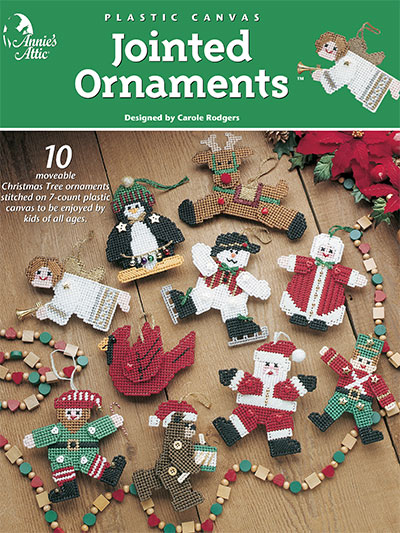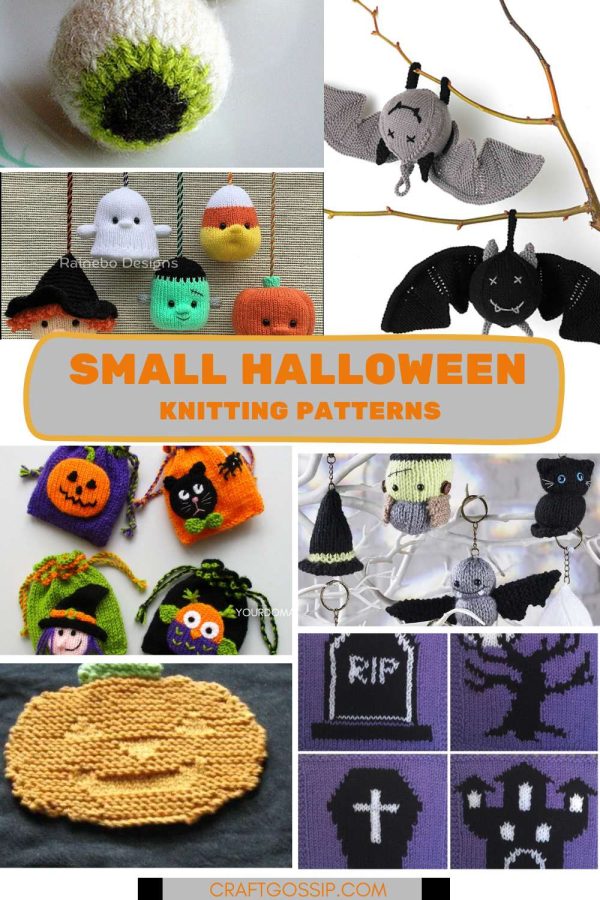
Have you read?
Small Halloween Knitting Patterns
 If you’re looking for cute and quick Halloween knitting patterns, you’ve come to the right place. This collection of small patterns is perfect for last minute decor or when you want to make a bunch of the same thing, or you’re just looking for some quick gratification.
If you’re looking for cute and quick Halloween knitting patterns, you’ve come to the right place. This collection of small patterns is perfect for last minute decor or when you want to make a bunch of the same thing, or you’re just looking for some quick gratification.
These little treat bags from Dolly Time are so cute, and the little appliques of a pumpkin, cat, witch and owl could also be used on other projects. They call for DK weight yarn to make 5 by 4.5 inch/13 by 11 cm bags; use thicker yarn to make bags that are a little bigger if you want. All the knitting is done flat.
This Halloween collection from Milla Mia (available as a free download on Ravelry) includes a cute knit bat (shown here) and spider, as well as candle wrappers featuring bats, cats and spiders. They all use DK weight yarn. To make the bat you’ll need a tennis ball or a foam ball to make the body.
Another creepy cute free download from Ravelry is this knit eyeball pattern from Mary Jane Mucklestone. These would be fun to make into backpack charms or earrings, or to hide around the house as a funny Halloween prank. I’m sure you can come up with lots of other ways to use them, too. The ones shown were worked with fingering weight yarn, but again you can change up the yarn to make them bigger. How about a blanket yarn eye shaped pillow?
The Halloween hangers from Lorraine Pistorio are just cute. These designs are worked in DK weight yarn and include a ghost, candy corn, pumpkin, Frankenstein’s monster and witch, all with cute little faces. They are worked in the round and considered intermediate patterns. You can find them on Ravelry.
Speaking of backpack charms, Gathered has a set of four little Halloween charms that are perfect for backpacks, keyrings, or to make into a garland. The free pattern includes a bat, cat, Frankenstein’s monster and witch’s hat. They use DK weight yarn.
Ruby and the Foxes has a few Halloween themed bunting patterns that would also be cute to stitch on washcloths or other projects. The graveyard set is shown here, but there are also black cats and other images to choose from. The patterns use DK weight yarn and include tips on how to make the project into a bunting.
If you want to knit actual washcloths for Halloween, I like this pumpkin shaped one that’s a free pattern from Colour it Green. The original uses DK yarn but worsted weight cotton is easier to find and will just make it a little bigger.